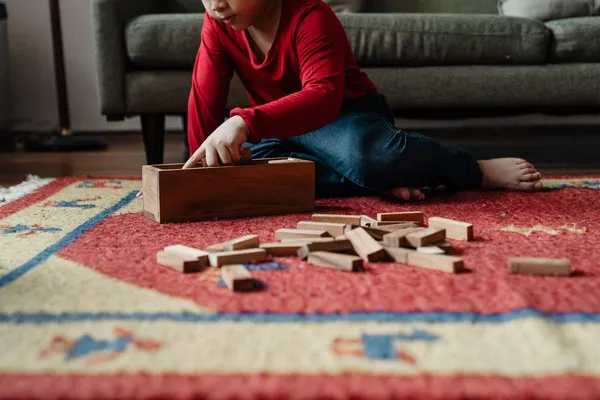Introduction: Parenting is one of the most challenging and rewarding experiences in life. Every parent wants to raise a well-behaved, respectful, and responsible child, but sometimes children become rebellious and difficult to handle. A rebellious child is one who defies authority, refuses to follow instructions, and engages in risky behavior. As a parent, it can be quite frustrating and overwhelming to deal with such behavior. However, there are effective ways to handle a rebellious child that can help you turn the situation around.
Understand the Root Cause of the Behavior
Rebellious behavior in children can be caused by various underlying factors. Some common causes of rebellious behavior include:
- Attention-seeking
Children may act out if they feel neglected or ignored by their parents. Rebellious behavior can be a way of getting their parents’ attention, even if it is negative.
- Lack of structure
Children thrive on routine and structure. When there is a lack of structure or clear boundaries, children may become confused and frustrated, leading to rebellious behavior.
- Poor communication
Effective communication is essential in building healthy parent-child relationships. If there is a breakdown in communication, children may not understand what is expected of them, leading to defiance.
- Trauma or stress
Children who have experienced trauma or stress may exhibit rebellious behavior as a coping mechanism. Traumatic experiences such as divorce, abuse, or neglect can cause emotional distress, which may manifest as rebellious behavior.
- Mental health issues
Rebellious behavior can also be a symptom of underlying mental health issues such as anxiety, depression, or ADHD. It is essential to seek professional help if you suspect your child has a mental health issue.
Understanding the root cause of your child’s rebellious behavior can help you respond appropriately and effectively address the behavior. By providing a supportive and structured environment, communicating effectively, and seeking professional help when necessary, you can help your child overcome their rebellious behavior and develop into a responsible and respectful individual.
Set Clear Boundaries and Consequences
Children need structure and clear boundaries to feel safe and secure. Setting boundaries helps them understand what is expected of them and what the consequences will be if they fail to follow them. It is essential to communicate these boundaries clearly and consistently enforce them to maintain your child’s respect and cooperation.
- Establish rules that are age-appropriate and make sure your child understands them.
- Discuss the consequences of breaking the rules and follow through with them consistently.
Use Positive Reinforcement
Positive reinforcement is a powerful tool for shaping behavior. Praising and rewarding good behavior reinforces the desired actions and encourages your child to continue behaving positively. When your child feels appreciated and acknowledged for doing things right, they tend to repeat those behaviors more frequently.
- Praise your child for any positive behavior, no matter how small.
- Use rewards such as extra playtime or a special treat to reinforce good behavior.
Practice Active Listening
Active listening involves giving your child undivided attention and letting them express themselves without judgment. When children feel heard and understood, they are more likely to cooperate and behave positively. Try to listen to your child’s perspective and validate their feelings, even if you don’t always agree with them.
- Allow your child to speak their mind and avoid interrupting them.
- Show empathy and understanding by paraphrasing what your child is saying.
Lead by Example Children
learn by observing the behavior of those around them, particularly their parents. As a parent, modeling appropriate behavior is critical in teaching your child responsible behavior. If you want your child to behave respectfully and responsibly, you must lead by example.
- Be a positive role model by exhibiting the same behavior you expect from your child.
- Avoid engaging in risky or negative behaviors that may influence your child negatively.
Conclusion: Raising a rebellious child can be stressful and overwhelming, but it is essential to remember that every child is unique and requires different approaches to address their behavior effectively. By understanding the root cause of your child’s behavior, setting clear boundaries and consequences, using positive reinforcement, practicing active listening, and leading by example, you can help your child overcome their rebellious behavior and become a responsible, respectful, and well-behaved individual.
Related Topics:




























